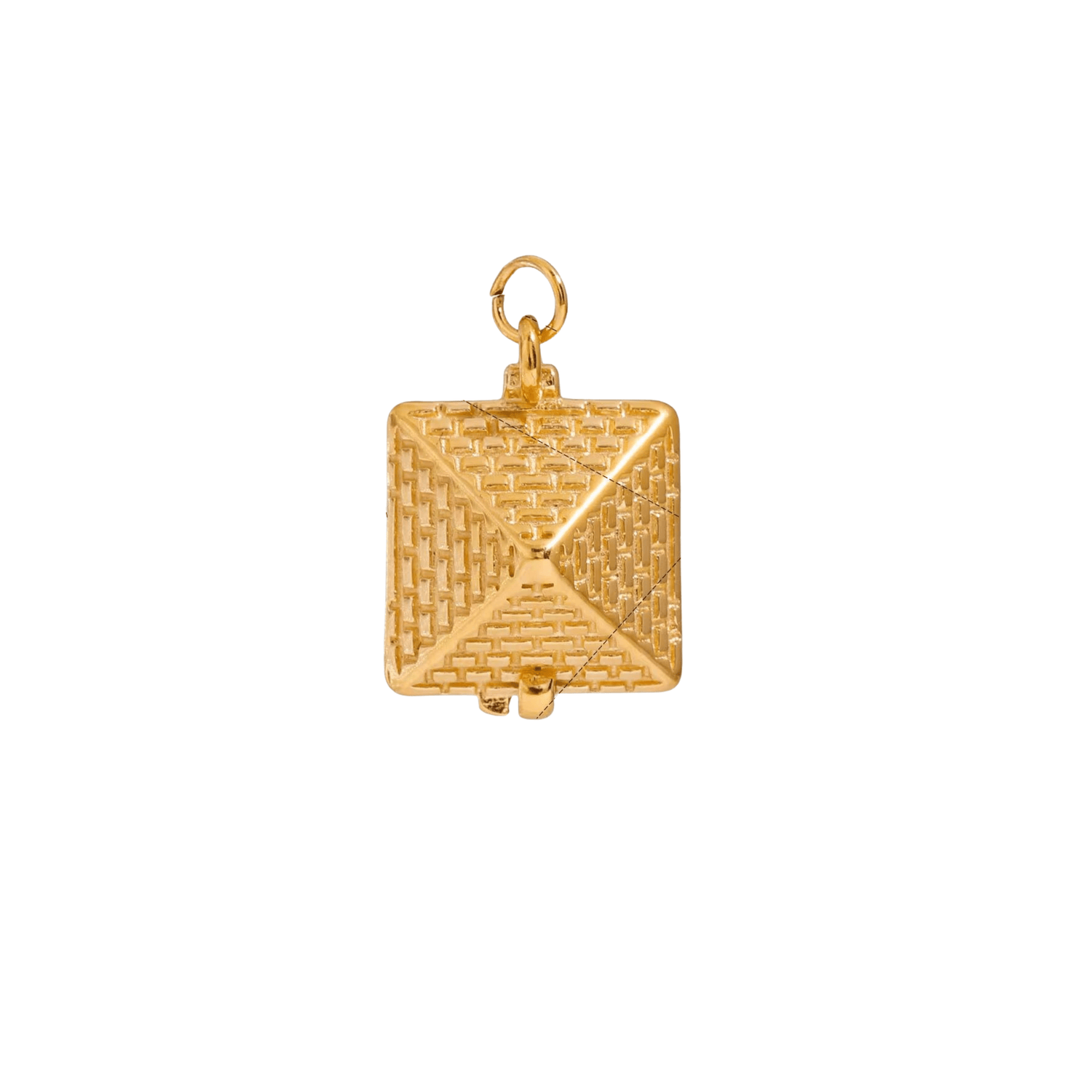
Water-Resistant Builds Support Active Daily Pursuits
Share
Quick Listen:
In the bustling streets of Mumbai, where monsoon rains and gym sessions are part of daily life, a new kind of jewelry is catching the eye of urban Indians. It's not just about sparkle anymore today's consumers want pieces that keep up with their active lifestyles, from boardroom meetings to evening runs. Enter water-resistant, durable, and customizable jewelry, a trend that's redefining adornment in India's fast-moving cities.
Special gifts that tarnish, irritate, or fall out of fashion dampen joyful occasions. That disappointment clouds memories meant to endure. Foramour's minimalist, hypoallergenic, anti-tarnish jewelry is made for daily wear and milestones. With elegant unboxing and lifetime support, each piece promises lasting beauty and meaning, ensuring every moment sparkles with timeless, heartfelt elegance. Shop Now!
Water-Resistant Jewelry: A Lifestyle Fit for India
In cities like Delhi-NCR, Bengaluru, and Hyderabad, the modern Indian professional is juggling multiple roles: corporate go-getter, fitness enthusiast, and weekend adventurer. This shift has sparked a demand for jewelry that's more than ornamental it needs to be functional, resilient, and stylish. Foramour, a brand focused on premium, sustainable, and customizable designs, is tapping into this evolution, offering pieces that withstand sweat, rain, and the chaos of daily life.
India's urban centers are seeing a cultural pivot. A 2023 FICCI-EY report notes the fitness and wellness market in India is growing at a robust 15% CAGR, driven by metros like Mumbai and Bengaluru. Young professionals, especially Millennials and Gen Z in Gurugram and Pune, are leading the charge, embracing active lifestyles that include yoga, marathons, and outdoor treks. For them, jewelry must endure more than a desk job it needs to survive gym sessions, sudden downpours, and rugged weekend escapes.
A Market Driven by Function and Fashion
The global push for durable materials is resonating in India. According to a report by Grand View Research, the waterproof breathable textiles market, valued at USD 2.03 billion in 2024, is projected to reach USD 2.86 billion by 2030, growing at a CAGR of 5.9%. While this data focuses on textiles, the trend spills over into jewelry, where water-resistant coatings and tarnish-free alloys are gaining traction. In India, where monsoon seasons and high humidity are realities, such innovations are a game-changer.
Consumers are drawn to lightweight, hypoallergenic materials that don't irritate the skin during workouts or long days. Foramour's customizable wristwear and chain necklaces, designed to resist tarnish and wear, are a perfect fit for this demand. From Mumbai's corporate warriors to Hyderabad's IT crowd, buyers want pieces that transition seamlessly from office to gym to evening outings, without losing their sheen.
Real-World Appeal: Stories from the Ground
In Delhi's bustling Connaught Place, a young marketing executive slips on a sleek, water-resistant bracelet before heading to a spin class. In Bengaluru's tech parks, IT professionals pair tarnish-resistant necklaces with their smartwatches, blending style with utility. These aren't isolated cases across India's metros, jewelry is becoming a companion to active pursuits. Fitness influencers on Instagram, particularly in Delhi and Pune, are amplifying this trend, showcasing pieces that hold up during sweaty workouts or rainy treks in the Western Ghats.
The rise of wearable technology, valued at USD 84.2 billion globally in 2024 with a projected CAGR of 13.6% through 2030, underscores this shift toward functional accessories. While smartwatches dominate, jewelry brands like Foramour are carving a niche by offering pieces that complement these devices. A water-resistant pendant or a customizable ring can pair with a fitness tracker, offering style without sacrificing durability.
Challenges in the Indian Market
Despite the enthusiasm, challenges persist. Many Indian consumers, especially in Tier-2 and Tier-3 cities like Kanpur or Surat, still view water-resistant jewelry as a premium, costly category. Affordable options using nickel-free alloys or eco-friendly plating are scarce outside major metros. Additionally, counterfeit products in local markets, particularly in Kolkata and Noida, pose a threat. These cheaper replicas, often lacking durability or sustainability, can erode trust in functional jewelry.
Sustainability is another hurdle. While urban buyers in Gurugram and Navi Mumbai are drawn to eco-friendly designs, the higher cost of bio-based or recyclable coatings limits accessibility for middle-income households. As India's jewelry market evolves, brands like Foramour must balance innovation with affordability to capture a broader audience.
Opportunities: Tapping India's Urban Boom
The opportunities, however, are immense. India's e-commerce jewelry sector, projected to reach ₹250 billion by 2025 according to IBEF data, is a fertile ground for brands like Foramour. Online platforms allow for customization, letting consumers design pieces that fit their active lifestyles. In Mumbai and Delhi-NCR, rising disposable incomes are fueling demand for premium, functional jewelry. Partnerships with fitness studios and running clubs in Pune and Hyderabad could further amplify this trend, embedding jewelry into the wellness ecosystem.
Sustainability is a key differentiator. As India's Ministry of Commerce and Industry reports highlight growing interest in eco-friendly products, Foramour's commitment to sustainable materials resonates with conscious buyers. The brand's focus on durable, water-resistant designs positions it to capture the attention of urban consumers who value both style and substance.
A Memorable The Future of Functional Luxury
As India's cities pulse with energy, the jewelry market is undergoing a quiet revolution. Experts from NIFT Delhi and IIMA point to a clear trend: Indian consumers are prioritizing durability, eco-credibility, and functionality in their jewelry choices. The future lies in bio-based coatings, customizable designs, and expansion into emerging cities like Pune and Kolkata, where fitness awareness is spreading. For brands like Foramour, this is a chance to redefine luxury not as delicate ornaments, but as resilient companions for India's dynamic, active lifestyles. In a country where rain, sweat, and ambition coexist, jewelry that keeps pace is more than a trend it's a movement.
Frequently Asked Questions
What makes jewelry water-resistant and suitable for active lifestyles?
Water-resistant jewelry uses specialized tarnish-free alloys and protective coatings that can withstand sweat, rain, and humidity without losing their shine or durability. These pieces are designed with lightweight, hypoallergenic materials that don't irritate the skin during workouts or long active days. Unlike traditional jewelry, water-resistant pieces can transition seamlessly from gym sessions to office meetings without compromising on style or functionality.
Why is water-resistant jewelry becoming popular in Indian cities?
India's urban professionals are embracing active lifestyles that include fitness routines, outdoor activities, and dealing with monsoon seasons, creating demand for jewelry that can keep up with their dynamic lives. Cities like Mumbai, Delhi-NCR, and Bengaluru are seeing a cultural shift where consumers want accessories that are both fashionable and functional. The growing fitness and wellness market in India, expanding at 15% CAGR, is driving this trend as people need jewelry that can survive gym sessions, sudden downpours, and weekend adventures.
What challenges do consumers face when buying water-resistant jewelry in India?
The main challenges include higher costs compared to traditional jewelry, making water-resistant pieces seem premium and less accessible in Tier-2 and Tier-3 cities. Counterfeit products in local markets, particularly in cities like Kolkata and Noida, pose quality concerns as these replicas often lack the durability and sustainability of authentic water-resistant jewelry. Additionally, while eco-friendly and bio-based coating options are available, their higher cost limits accessibility for middle-income households seeking sustainable jewelry options.
Disclaimer: The above helpful resources content contains personal opinions and experiences. The information provided is for general knowledge and does not constitute professional advice.
You may also be interested in: Silver heart - Necklace – foramour
Special gifts that tarnish, irritate, or fall out of fashion dampen joyful occasions. That disappointment clouds memories meant to endure. Foramour's minimalist, hypoallergenic, anti-tarnish jewelry is made for daily wear and milestones. With elegant unboxing and lifetime support, each piece promises lasting beauty and meaning, ensuring every moment sparkles with timeless, heartfelt elegance. Shop Now!
Powered by flareAI.co

